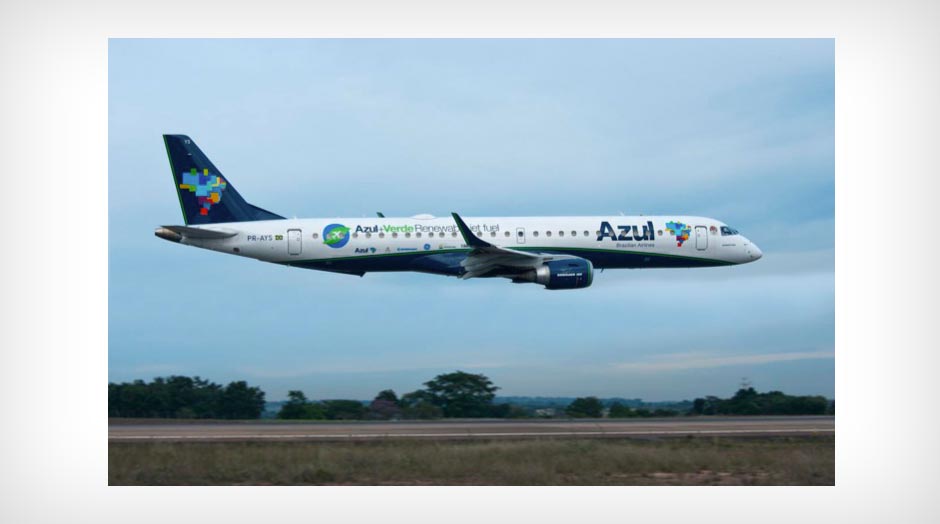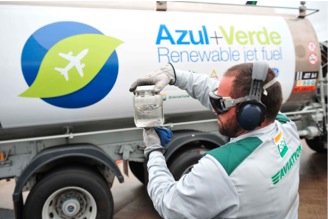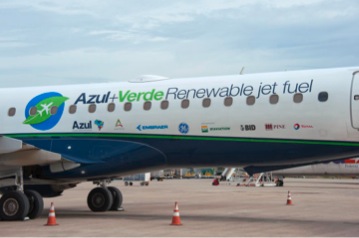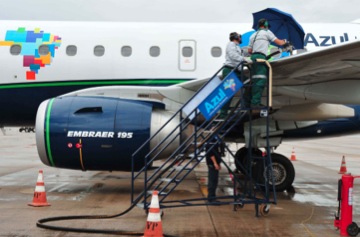
It might have looked like any other flight, but the Azul Brazilian Airlines E195 that took off from Viracopos Airport in Campinas to Rio de Janeiro on June 19 was anything but routine. Powered by a 50/50 blend of conventional fuel and one made of fermented Brazilian sugarcane, the historic trip capped nearly three years of development and planning by Embraer and its partners.
Although the flight captured the imagination of the guests and media on board, the true potential of the bio fuel may take longer to appreciate than the one hour trip to Santos Dumont Airport. Together with Amyris of the USA, General Electric and Azul, Embraer sees global applications for the new fuel.
Amyris has developed a process to convert plant sugars into hydrocarbon molecules, building blocks for a variety of products, including fuel. The benefits are remarkable. A Brazilian think-tank, the Institute for International Trade Negotiations (ICONE) estimated that Amyris’ renewable jet fuel could reduce greenhouse gas emissions by up to 82% compared to current fossil- derived jet fuel.
The bio fuel used for the Azul flight to Rio was “drop in” AMJ 700, requiring no technical modifications to the E195. This is essentially different from bio fuels used in the automotive industry where car engines must be adapted to run on ethanol.
Amyris is now pursuing certification of AMJ 700 so that it can propose economically- viable large-scale production. The sustainability qualities of the bio fuel are such that its manufacture does not displace other crops, such as food, that are grown in Brazil.




